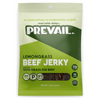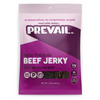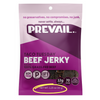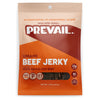Are GMO Foods Healthier Than Non-GMO Foods?

Are you concerned about the safety of the food you eat? Many people are, especially when it comes to genetically modified organisms (GMOs). GMO is an acronym for Genetically Modified Organisms.
GMO foods are plants or animals that have been genetically engineered with DNA from other plants, animals, viruses, or bacteria.
But what exactly is a GMO? And is there anything wrong with eating them? Let's take a closer look.
What Does GMO Mean?
As stated earlier, GMO stands for "genetically modified organism." GMOs are sometimes called "transgenic" organisms. This term refers to the process of transferring genes from one species to another, creating an organism with a combination of genetic material from two different species.
A GMO is a plant, animal, or microorganism that has been created through the use of genetic engineering. This means that genes from one organism have been transferred into another organism in order to change its characteristics. On the other hand, Non-GMO foods are ones that haven't been genetically engineered.
The first GMO was created in 1973, and since then, scientists have developed many different types of GMOs. GMOs are used in food production, medicine, and research. They have also been created for industrial and environmental purposes. Therefore, the term "GMO" is used to refer to any organism whose genetic material has been changed in a way that does not occur naturally.
What Are Genetically Modified Foods?

Genetically modified foods (GM foods) are foods that have been produced from plants or animals whose genetic material has been changed in a way that does not occur naturally.
Scientists take one or more genes from the DNA of another organism, such as a bacteria, virus, mammal, or plant, then "recombine" them into the DNA of the plant they want to alter in the genetic manipulation of food plants. By adding these new genes, genetic engineers hope the plant will express the traits associated with the genes.
The first Genetically engineered food was created in 1994. Since then, many different GM Foods have been developed and are now available on the market.
GM Foods are found in many different types of food, including corn, soybeans, canola oil, cottonseed oil, GMO sugar beets, and alfalfa. They are also present in some animal products, such as meat and dairy products from animals that have been fed GM feed.
Genetically engineered foods have been controversial since they were first introduced. Some people believe that GMO foods are safe to eat, while others believe that they are not. Some of the strong discussion debates for Genetically modified foods include:
Genetic Modification Is Potentially Hazardous
One of the major issues with genetic engineering is that the process of putting genes into the DNA of a food plant is completely random, and scientists have no idea where the genes will end up. This can cause other genes to malfunction and produce novel proteins that have never been seen before in the food supply, as well as poisons and unknown allergens.
Genetic Engineering Is Unpredictable
It is impossible to predict all the potential risks of GMO foods. Once these foods are released into the environment, they cannot be recalled.
Supporters of genetic modification argue that it is simply a more advanced form of traditional plant breeding. Genetic engineering, on the other hand, is completely different.
Plant breeders use plants from the same or closely related species to develop new plant types. By permitting gene transfers between bacteria, viruses, and even animals, genetic engineers break down nature's genetic barriers—with unintended consequences.
Genetic Engineering Is Based On An Outdated Scientific Theory
The theory of genetic modification is based on a scientific theory that is no longer valid. The Central Dogma states that one gene expresses one protein, which is the basis for genetic alteration.
However, scientists at the National Human Genome Research Institute in the United States determined that this was not the case and that genes operate in a complex network in ways that are still unknown. This discovery calls into question the entire rationale for genetic engineering.
The debate over GMO foods is ongoing, and more research is needed to determine their safety. In the meantime, you can choose to avoid GMO foods by buying organic or non-GMO food products.
You can also look for the Non-GMO Project Verified label on food products. This label indicates that a product has been verified to be free of GMOs.
What Are the Hazards of GMO Foods?

There are many hazards associated with GMO foods. One of the most significant hazards to is that GMO foods can potentially cause health problems in people who consume them. Some common health problems peculiar to GMO foods include:
Allergic reactions
Individuals are concerned that GMO foods have a higher risk of causing allergic reactions. This is due to the fact that they may contain genes from an allergen - a food that causes an allergy reaction.
Because of this, the World Health Organization (WHO) cautions genetic engineers against using DNA from allergens unless they can demonstrate that the gene itself is not to blame.
Cancer
According to some experts, eating GMO foods may cause cancer. They suggest that since DNA changes trigger the illness, introducing new genes into the body is hazardous.
Antibacterial Resistance
There is concern that genetic modification, which can improve a crop's resistance to disease or make it more tolerant to pesticides, might reduce the ability of individuals to resist illness.
There's a chance that genes from food may be passed to the body or bacteria in the gut. GMOs include plants with genes that make them resistant to certain antibiotics. This resistance might be inherited by humans as well.
Environmental Hazards of Genetically Modified Crops

There are also environmental hazards associated with GMO foods. Genetically modified Crops can contaminate non-GMO crops, and once they are released into the environment, they cannot be recalled. GMO crops can also lead to the development of herbicide-resistant weeds, which can create additional problems for farmers.
Asides from that, these crops increase the use of pesticides, which can be harmful to the environment. A study by Greenpeace found that GMO crops have led to a dramatic increase in pesticide use. GMO crops cause hardship for Non-GMO farmers because they pass transgenes to crops planted by farmers who use Genetically engineered crops.
How To Avoid Genetically Engineered Foods
The first way to avoid GM foods is to buy organic or non-GMO food products. You can also look for the Non-GMO Project Verified label on food products. Here are some ways you can avoid GMO foods:

-
Avoid Processed GMO Food: A lot of the GMO foods on the market are processed foods. More than 70% of processed foods found in fast foods, retail stores, and restaurants contain ingredients derived from genetically modified corn, soybeans, canola, and cotton. By avoiding these foods, you can attain a Non-GMO diet.
-
Choose Whole Foods: Another way to avoid GMO foods is to choose whole foods and organic food. Whole foods are less likely to be contaminated with GMOs than processed foods.
-
Educate Yourself about GMO Foods: The best way to avoid GMO foods is to educate yourself about them. GMO foods are not well-labeled, and they are often found in processed foods. By learning about GMO foods and how to avoid them, you can make sure that you and your family are eating safe, healthy food.
-
Grow your own food: Another effective way to avoid GMO foods is to grow your own food. If you have the means, you can have a garden and grow your own fruits and vegetables. This is a great way to ensure that your food is GMO-free.
-
Buy from local farmers: Another way to avoid GMO foods is to buy your food products from local farmers. Local farmers are less likely to use GMO seeds, and they are more likely to use organic methods.
-
Contact the Companies: You can also contact companies directly and ask them if their products contain GMO ingredients. However, some companies have started labeling their products GMO-free.
Need A Non-GMO snack? Try Prevail Beef Jerky!

GMO foods are everywhere, but there are ways to avoid them. One way is to buy Non-GMO snacks like Prevail Beef Jerky.
Our mission is simple: To provide people with clean and healthy snacks that are devoid of any artificial preservatives or other harmful components.
And we understand how critical it is to guarantee that your family only consumes the purest, healthiest, and most nutritious snacks free of GMOs. This is why all our products undergo a rigorous HACCP cleanup to ensure that there is no cross-contamination.
Regulators are always on the premises to ensure that high standards are maintained. We're also Paleo Certified, which means the Paleo Foundation examines our sourcing procedures to ensure our jerky contains no grains, soy, gluten, or dairy.
Finally, all of our jerky flavors are produced in Springfield, Illinois, right here in the United States. And we use only the world's most trusted suppliers for our organic spices, and the beef comes from New Zealand farms that are completely grass-fed and grass-finished.
Conclusion
There are many reasons to avoid GMO foods. They can have harmful health effects, and they can be damaging to the environment. By educating yourself about GMO foods and by taking steps to avoid them, you can ensure that you and your family are eating safe, healthy food. Thanks for reading!











